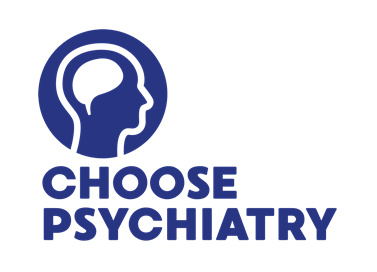Choose Psychiatry 2023: Seeing the person not the patient
24 October, 2023

Angela McCrimmon, 46, from Livingston, was diagnosed with bipolar disorder when she was 19 years old. In this blog, she discusses her mental health journey and the importance of psychiatry.
As a teenager, I wouldn’t have been able to begin to tell you what bipolar disorder is despite the fact I was already living with it and many of the signs were already there.
I experienced incredible highs, often feeling like I was racing at 100mph, and would make impulsive decisions such as taking a trip to Rome. It never occurred to me this might mean I have a mental illness. After all, why would I call a doctor to tell them I had a great day?
Of course, there was the other side too. I struggled with depression and was more absent from school than I was present. This should have been a red flag, but no one even asked me for a sick note because I was still passing my exams.
I started going to see my GP for physical health issues when I was 19 and just from talking to me he noticed I was experiencing a high. He referred me to a psychiatrist who, much to my surprise, diagnosed me with bipolar disorder and gave me a prescription for medication to help treat it.
This was only the start of my mental health journey, and I won’t pretend all my experiences with mental health services have been this productive. Some doctors didn’t realise I was particularly good at masking my depression and thought I wasn’t suffering as much as I claimed to be. Others only saw me when I was in crisis and consequently assumed I was always struggling to cope.
Fortunately, my most recent psychiatrist was different. She monitored me very closely for a year and made sure I was on the right medication. This stabilised my illness and ensured there would be months between my high and low episodes rather than weeks. It made a world of difference to my life because I could finally do volunteer work and make plans with my friends while knowing there was a good chance they would actually work out. I was also diagnosed with Autism Spectrum Disorder, which answered a lot of the questions I still had about myself and is something I’m hoping to make more progress on in the future.
The biggest difference between my current psychiatrist and some of my previous doctors was that she really listened to me and acknowledged everything I was trying to do to help myself. I was very used to being the patient and doing whatever the doctor told me to do, but with her I could take an active role in my own care. I finally didn’t feel like I was just a passenger in my own life and that meant everything to me.
We’ve reached a point where she lets me send her a letter or pictures of what I’ve been doing ahead of our meetings so that she can see more than just my illness. I was worried this might be crossing a line when I first suggested it, but she loved the idea and I’ve been seeing her for seven years now.
I don’t know where I’d be without psychiatry, but I do know my story is one of thousands and not everyone is able to see a psychiatrist in this country. You’d have to be living on another planet not to see the damage the pandemic has done to people’s mental health and we urgently need more psychiatrists to care for people.
That’s why I’ve supported the College’s Choose Psychiatry campaign and worked with other charities like the Scottish Association for Mental Health (SAMH) to raise awareness of the importance of mental health.
I loved taking part in the College’s Choose Psychiatry campaign video and meeting the four psychiatrists on the day gave me hope for the future. Young people seem to be more open to talking about mental health and the next generation of psychiatrists will have a real opportunity to break down the stigma that has affected both myself and countless other people who have struggled with mental illness over the years.
Angela McCrimmon, 46, from Livingston
Make a difference – choose psychiatry
Considering a career in psychiatry? Hear from working psychiatrists why they chose psychiatry and how rewarding the job can be.
Or if you've taken a break from work or training, let us show you the wide range of support on offer as you return.


